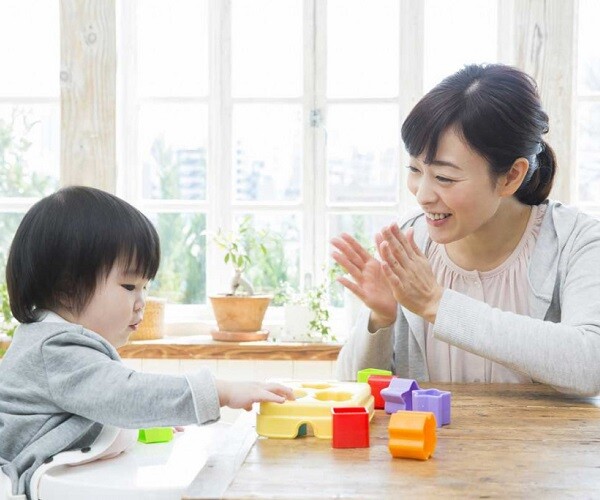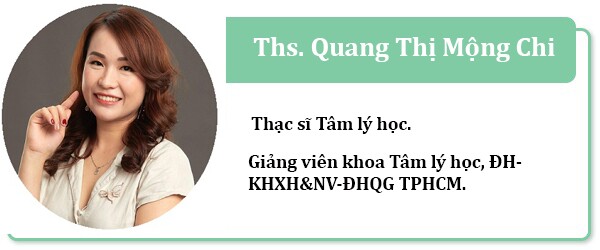Receiving recognition from parents can be a powerful motivator for children, but it’s important to offer constructive praise that encourages a growth mindset. Empty flattery or exaggerated praise can lead children astray, focusing on superficial accolades rather than genuine values.

Illustrative image.
One common form of exaggerated praise is over-inflating a child’s abilities, such as saying, “You’re the smartest in your class” or “You’re number one.” This approach can have two detrimental effects. Firstly, it puts immense pressure on children, implying that success is solely measured by rankings or achievements rather than effort and learning processes.
Secondly, it encourages children to develop a habit of comparing themselves to others. Instead of focusing on self-improvement and skill development, they may become fixated on attaining a specific position in their class or other activities.
In reality, praise is a potent tool that should be wielded wisely.

Psychologist Quang Thi Mong Chi.
Can exaggerated praise, which places a child’s perceived abilities above their true value, lead to a lifelong tendency to “live in a fantasy world”?
Statements like “You’re the smartest” or “You’re number one” may seem encouraging, but when used frequently and inappropriately, they can have unintended psychological consequences. Firstly, these statements often involve comparisons and absolutes, placing children in a position of being “better than others” instead of accurately assessing their efforts or actual accomplishments.
When children repeatedly hear such praise, they may develop an “illusory self-image,” believing that their worth depends on being superior to others. This can lead to a fear of failure, difficulty accepting imperfection, and even avoidance of new challenges to maintain their “number one” image.
Over time, children may become engrossed in maintaining this image in the eyes of others, even when it no longer aligns with reality. This is what we call “living up to expectations rather than living for oneself.”
If not addressed timely, children may develop psychological defense mechanisms, such as denying reality, avoiding healthy competition, or forming fragile self-esteem that relies solely on external validation and praise. So, while parental praise is not inherently wrong, the way it is delivered needs reconsideration.
Instead of absolutist statements, parents should opt for descriptive praise that focuses on behaviors and processes. For example, say, “You’ve been very diligent in your practice,” or “I noticed how well you tackled that challenging part.” Such praise nurtures a growth mindset, encouraging children to continue striving without fostering illusions about their status or self-worth.
Are young children particularly susceptible to internalizing comments about themselves, and if so, can exaggerated praise lead to a lack of humility, difficulty accepting failure, and a tendency to constantly compare themselves to others?
Yes, young children, especially during the preschool and early school years, are in a critical phase of developing their sense of self and self-worth. Repeated statements like “You’re the best” or “No one is like you” can gradually shape a self-image that is disconnected from reality – one that relies on being superior to others to feel valued.
This can lead to several negative consequences. Firstly, children may find themselves in a constant comparison loop, always viewing their peers as “rivals.” They may feel anxious when others excel, become unhappy when others are praised, or even diminish others’ achievements to protect their “number one” status.
Secondly, over-emphasizing innate abilities instead of effort can foster a sense of entitlement and a fixed mindset. When faced with failure – an inevitable part of life – children may feel ashamed, lost, or believe they are “no longer worthy.” Instead of learning from their mistakes, they may avoid challenges to prevent “losing face.”
Research in developmental psychology, notably the work of Carol Dweck, has demonstrated that praising innate abilities can hinder children’s resilience in the face of failure. In contrast, praising effort and perseverance fosters tenacity and a growth mindset.
Therefore, to promote healthy personality development and instill humility, acceptance of failure, and a willingness to learn, parents should offer timely and appropriate praise – focusing on behaviors, progress, and resilience rather than absolute “rankings” or “levels.”
Can exaggerated praise, such as “You’re the best in your class,” foster unhealthy competition among children? If so, how can we mitigate this issue?
Absolutely. Statements like “You’re the best in your class” not only convey recognition but also implicitly encourage comparisons, suggesting that a child’s worth is measured by being above their peers rather than by their own efforts or progress.
This can create an unhealthy competitive environment in schools, especially if children start viewing their classmates as rivals instead of collaborators in learning and growth. In a class where children are consistently praised through comparisons, the atmosphere can become tense and uncooperative.
Children may feel pressured to maintain their “top” position, fear falling behind, and become disappointed if they no longer receive the same recognition from parents or teachers. Conversely, those who aren’t praised may feel inferior, left out, or worthless, leading to feelings of rivalry or withdrawal.
To mitigate these issues, parents and teachers can implement the following strategies:
Shift from comparative praise to developmental praise: Instead of saying, “You’re the best in your class,” try, “You’ve made progress since yesterday,” or “I’m proud of how you tackled that challenging math problem.”
Recognize individual efforts: Every child has unique strengths. By focusing on individual learning processes, parents can help children understand that effort is what truly matters, not their position relative to others.
Foster a spirit of cooperation: Teach children to help and share learning strategies with their peers. This promotes a supportive environment instead of a competitive one.
Share the value of failure and effort: Help children understand that failure doesn’t diminish their worth and that effort is the key to sustainable success.
In summary, praise can be a powerful tool in education, but when used inappropriately – especially when it involves comparisons – it can inadvertently sow the seeds of toxic competition. Instead, teach children to compare themselves to their past selves rather than to others.
If parents refrain from calling their child “the best,” how should they praise their children to help them understand themselves, develop their strengths, and improve their weaknesses?
Praise is an essential part of parenting, but not all forms of praise are equally beneficial. Instead of saying, “You’re the smartest,” or “No one is like you,” parents should opt for more constructive ways to help children gain self-awareness, build on their strengths, and address their weaknesses.
Firstly, praise your child’s efforts and processes rather than solely focusing on outcomes. Statements like, “You’re so smart,” may lead children to believe that success stems from innate abilities rather than hard work.
On the other hand, saying, “I noticed how much time you spent on this assignment; your perseverance impresses me,” will help children understand that dedication is the key to success. This nurtures a growth mindset, a crucial factor in helping children stay resilient when facing challenges.
Secondly, offer specific behavior-focused praise instead of general evaluations. Instead of saying, “You did well on that test,” be more precise: “I like how you took notes during class; it helped you understand the material better.” Specific praise helps children identify which behaviors yield positive results, encouraging them to maintain and build upon those positive behaviors.
Thirdly, encourage self-reflection by asking open-ended questions. Instead of making one-sided assessments, ask your child, “What do you think you did best on this assignment?” or “If you could do it again, what would you change?” These questions not only foster self-reflection but also encourage children to take ownership of their learning and improvement rather than relying solely on external praise.
Lastly, acknowledge even the smallest signs of progress and change. A statement like, “I noticed you started doing your homework without being reminded; that’s a big step forward,” can be far more encouraging than comparative praise.
When children feel that their efforts and progress are recognized, they gain confidence and motivation to continue striving. Here are some examples of healthy praise that parents can use daily:
– “You approached that task very creatively.”
– “I appreciate how thoughtfully you made that decision.”
– “That was a tough assignment, but you didn’t give up. I’m proud of you.”
– “I like how you shared your toys with your friend. You’re learning to care about others.”
In conclusion, appropriate praise is not just encouragement; it’s a vital tool for helping children develop a realistic sense of self. When praised constructively and reasonably, children will cultivate healthy self-esteem, self-improvement, and resilience in their journey through life.
Most importantly, they’ll understand that their worth isn’t defined by being “better than others” but by their sincerity, effort, and daily growth.
Presenting Your Little One with 20 Floral Coloring Adventures: Unveiling a World of Colors and Creative Exploration
Introducing a vibrant world of colors and flora to your child, engage them in a conversation about the wonderful world of flowers. Spark their curiosity by asking questions about the names, hues, and symbolism of these delicate blooms. Encourage your little one to explore and appreciate the beauty and diversity of nature, fostering a deeper connection with the environment around them.



































